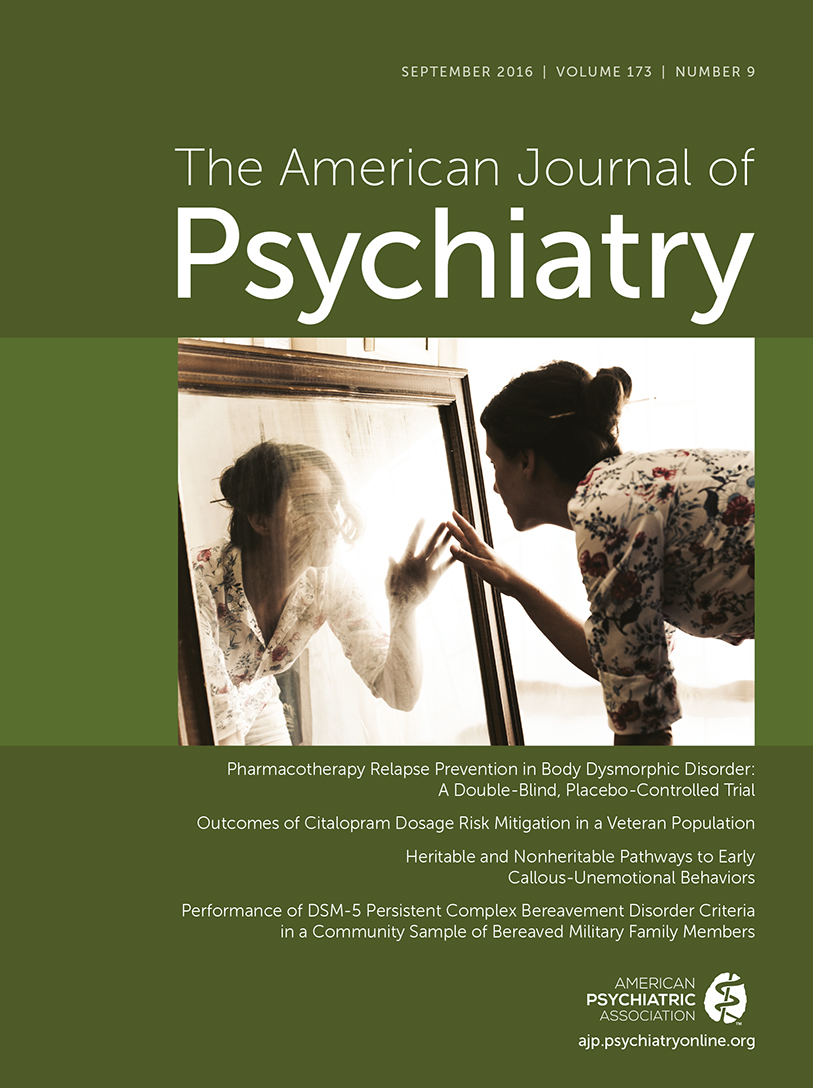Pharmacotherapy Relapse Prevention in Body Dysmorphic Disorder: A Double-Blind, Placebo-Controlled Trial
Abstract
Objective:
Body dysmorphic disorder is common, distressing, and often severely impairing. Serotonin reuptake inhibitors appear efficacious, but the few existing pharmacotherapy studies were short term (≤4 months), and no relapse prevention studies or continuation phase studies have been conducted to the authors’ knowledge. The authors report results from the first relapse prevention study in body dysmorphic disorder.
Method:
Adults (N=100) with DSM-IV body dysmorphic disorder received open-label escitalopram for 14 weeks (phase 1); 58 responders were then randomized to double-blind continuation treatment with escitalopram versus switch to placebo for 6 months (phase 2). Reliable and valid outcome measures were utilized.
Results:
In phase 1, 67.0% of treated subjects and 81.1% of subjects who completed phase 1 responded to escitalopram. Body dysmorphic disorder severity (in both the intent-to-treat and the completer groups) and insight, depressive symptoms, psychosocial functioning, and quality of life significantly improved from baseline to end of phase 1. In phase 2, time to relapse was significantly longer with escitalopram than with placebo treatment (hazard ratio=2.72, 95% CI=1.01–8.57). Phase 2 relapse proportions were 18% for escitalopram and 40% for placebo. Among escitalopram-treated subjects, body dysmorphic disorder severity significantly decreased over time during the continuation phase, with 35.7% of subjects showing further improvement. There were no significant group differences in body dysmorphic disorder severity or insight, depressive symptoms, psychosocial functioning, or quality of life.
Conclusions:
Continuation-phase escitalopram delayed time to relapse, and fewer escitalopram-treated subjects relapsed than did placebo-treated subjects. Body dysmorphic disorder severity significantly improved during 6 additional months of escitalopram treatment following acute response; more than one-third of escitalopram-treated subjects experienced further improvement.



